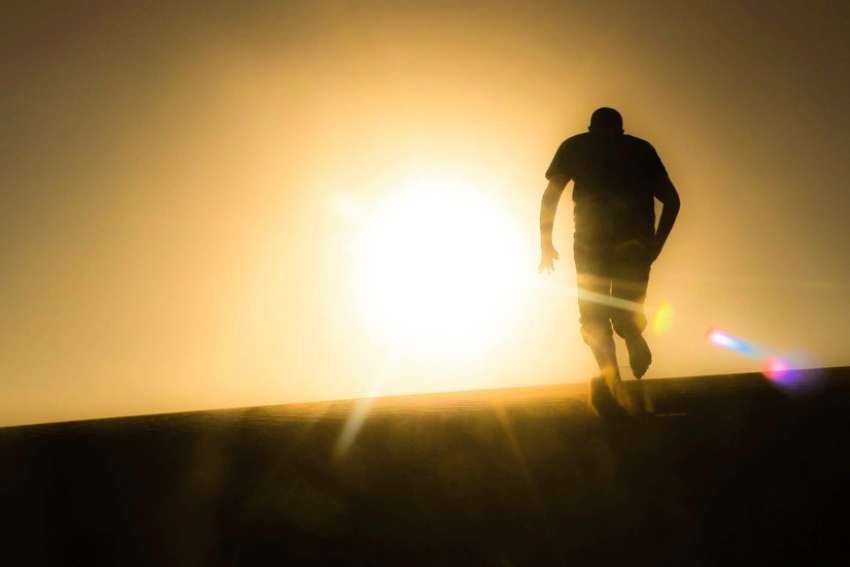At the most obvious level, the answer has to be yes. If God’s answer were no, His no would definitely be no. I would currently be otherwise engaged.
Beyond that, the unfolding of events stretches the bounds of “coincidence” to the point where an ordained pattern, and so an act of His will, becomes credible gusting to inescapable.
To start, there’s the sheer improbability of me standing at arm’s length from a cardiologist monitoring the activity of my heart when it suddenly shot past 200 beats a minute. Arm’s length really means “fist distance” since he was close enough to punch my chest and reset the half of my heart that was pounding wildly out of control, and the half that was hanging on flapping uselessly like a rag doll on a rope. The speed of his hit brought me back from … well … he saved my life.
Beyond that, there’s what initially brought me there. During a run on a hot, humid August afternoon, I fainted for reasons then unknown. But I didn’t just faint. I collapsed literally at the feet of a long-time friend I hadn’t seen for a few years. I stopped to chat, and was laughing at a joke, when suddenly I was on a stretcher being loaded into an ambulance. No warning. No apparent reason. More importantly, though, no friend, no first aid, no help to get me to the emergency room in time. Had I run on … well … my friend saved my life.
Here’s where the “coincidences” get mysterious. It’s legitimate to say COVID-19 truly saved me. As it has with everything else, the pandemic wiped out the entire season of running road races that I participate in every year. When they were cancelled in the spring, I kept training hard in hope of running a particular October 5K in 20 minutes or less for the first time in several years.
I was on track, so to speak. I knew I was very close. What I could not possibly know is how close I was to pushing myself to a level where what happened to my heart after a treadmill test in a cardiologist’s office might have occurred in the streets of Montreal. Had it done so, I would have been far, far from a heart doctor’s fist distance to bring me back. The COVID cancellations unquestionably made a difference whether I’m here or elsewhere.
When family, friends and colleagues cited this pattern as evidence of God’s desire to keep me on Earth for a while, I welcomed it — who wouldn’t? — because the truth of it was wrapped in care, concern, the charity of belief that He looks out for those we love. Then I began to wonder why. Not just “why me?” but much more “why not someone else?”
Why, to put it bluntly, would God want to keep me around and not Joyce Echaquan? She is the Indigenous mother of seven who died Sept. 28 in hospital in Joliette, Que. Even as she lost her life, Echaquan was able to livestream two nurses uttering racist taunts toward her, calling her stupid and saying she’d be better off dead.
Does God play at white privilege? Of course He doesn’t. Yet it’s possible to see how the question might arise in the circumstances, yes? The childhood answer I learned was “there but for the grace of God go I.” But that struck me as deeply unsatisfactory even when I was a kid.
Yes, it’s a good reminder that God’s grace is freely given, not acquired by hook or crook. And it provides essential protective humility against vaunting over those less fortunate. But it’s ultimately circular.
“I go by the grace of God.” Why? “Because the grace of God goes to me.” One could get dizzy and fall at a friend’s feet, or need a reset punch from a nearby cardiologist, running around those loops.
As I recover from these events — i.e. as I am alive — it strikes me that perhaps it’s the question that needs resetting. It’s not so much why would God want me here on Earth. It’s how can I fully live out the love He gives me as a free gift while I am here on Earth? The onus is on me. I must think about that for the rest of my life, however brief or long.
(Stockland is publisher of Convivium.ca and a senior fellow with Cardus.)


